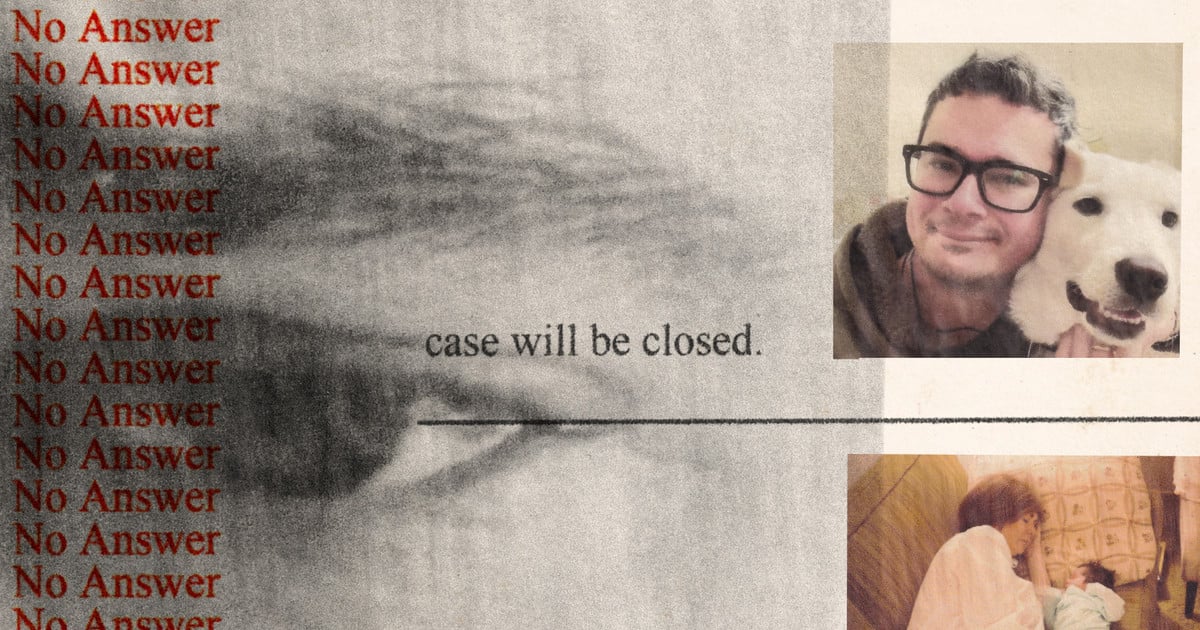Ravi didn’t know it, but he, like millions of Americans, was trapped in a “ghost network.” As some of those people have discovered, the providers listed in an insurer’s network have either retired or died. Many other providers have stopped accepting insurance — often because the companies made it excessively difficult for them to do so. Some just aren’t taking new patients. Insurers are often slow to remove them from directories, if they do so at all. It adds up to a bait and switch by insurance companies that leads customers to believe there are more options for care than actually exist.
Ambetter’s parent company, Centene, has been accused numerous times of presiding over ghost networks. One of the 25 largest corporations in America, Centene brings in more revenue than Disney, FedEx or PepsiCo, but it is less known because its hundreds of subsidiaries use different names. In addition to insuring the largest number of marketplace customers, it’s the biggest player in Medicaid managed care and a giant in Medicare Advantage, insurance for seniors that’s offered by private companies instead of the federal government.
ProPublica reached out to Centene and the subsidiary that oversaw Ravi’s plan more than two dozen times and sent them both a detailed list of questions. None of their media representatives responded.
Large-scale, privatized healthcare appears unable to provide actual healthcare.
And all that under the pretense of having “more options.”
It’s a scam that plays on people’s well-being and that is very sad indeed.
Let’s say you need to pull a screw, and you’re given a box of ‘tools’ to work with. In the box you find old shoes, ratty clothes, a mace, and some flyers for ‘cats the musical’
Technically there’s more options that you might have expected, but none can do the job.
That’s American healthcare.
Large-scale, privatized healthcare appears unable to provide actual healthcare.
Being paid to not provide any useful service is, indeed, most profitable.
Health Net is one of Centene’s companies and they pull this crap and worse every single day.
Health Net’s provider lists includes a huge number of ghost providers. In my case even the ones that were real were the wrong kind of specialists. Heath Net insisted I go to these providers despite the fact they couldn’t help me and refused to see me.
I ended up having to regularly make a 220 mile trip to get the healthcare I needed.
It gets worse. Health Net regularly refused payment for services that were covered under their policy. I easily spent 10 hours a week on the phone trying to get legitimate claims paid by this horrible company. The first 45 minutes of the calls were spent trying to get past their first line “customer service” people to someone who could actually deal with the problem. Health Net repeatedly refused coverage on DME that they had previously paid for and said the previous approvals were a mistake. They weren’t.
Health Net even refused payment for a visit to specialist after they had provided pre-approval for the visit in writing. It took seven months and probably 20 hours on the phone before the crooks paid the bill.
Centene and their subsidiaries should be shut down and their executives should be in prison.
Insurance companies need to face financial penalties for having these ghost networks. You should legally be able to demand, and sue for, $50 for every fake listing you find in your insurance’s company’s network. This is the 21st century. It should be possible for insurance companies to instantly know whether providers are still accepting new patients. Insurance companies could have a platform where providers can instantly indicate that they’re no longer accepting new patients. And insurance companies could add penalties to their contracts with providers. If the providers don’t update their status as soon as they are no longer accepting new patients, then the providers themselves will have to pay some sort of penalty.
I mean, I’ve been voting about forty years, been told to vote blue just once more since Bill Clinton, and people would burn me at the stake for finally realizing the illusion of choice/ratchet effect. I’m over it.
This happened to us when we wanted to get my son help for some behavioral issues. Trying to find a counselor who specialized in helping children was a nightmare.
Our health insurer’s website listed a few dozen, which was encouraging at first. But when I started calling them most were no longer in business, no longer accepted our health insurance (despite still being listed on the insurer’s website), or didn’t accept any new patients. And of the few who did have some availability, their evangelical Christianity beliefs were a fundamental part of their work - to the point where Jesus preaching was going to be a constant focus of the therapy.
We finally found someone (she was a devout Christian but it didn’t interfere with her counseling strategies, so that’s fine). But even she stopped accepting new patients soon after we signed up because she was so slammed with demand.
The state of mental healthcare in America is fucking atrocious. There are too few therapists in general, especially ones who help children. And as this article points out, health insurers deliberately make it so difficult for those counselors to use them that they refuse to work with with many insurance plans. And so many therapists are outside the pricing of families, even when they have insurance, and even with those therapists giving discounts.
A big part of this is the legacy that mental healthcare still isn’t seen as a legitimate practice by many in the corporate world, despite their false marketing claims. Considering how frequently big insurers screw people out of claims for physical illnesses (cancer, etc.), you just know they will screw people with mental health challenges at least as much. Because to some of them - especially older boomers who are still lingering in senior management rules - it’s all fud.
Another part of the problem (which relates to my previous point) is that mental healthcare isn’t as quantifiable as most physical healthcare (because the brain and feelings are very complicated), so corners are cut and the industry is seen with suspicion and frustration by insurers who are focused on making as much money from their customers as possible.
The net result? A ton of people who are struggling through daily life with their own challenges, and exhausted family members and friends who are having to try to help them as best they can.
Until we massively overhaul the broken healthcare/insurance system here, shit like these ghost networks and the underlying causes and their other effects will continue to break our society.
And of the few who did have some availability, their evangelical Christianity beliefs were a fundamental part of their work - to the point where Jesus preaching was going to be a constant focus of the therapy.
What the fuck? Those aren’t counselors, those are fucking quacks who should be in prison for fraud!
My two pennys are betting that this is all part of some larger purposeful plot to destroy the US from within, starting with the 1981 Omnibus Budget Reconciliation Act by the Reagan administration which cut federal funding for mental health services and shifted responsibility to individual states who did not have the resources or systems in place to adequately care for those with mental illness.
Or, maybe I’m just paranoid and in need of some help.
It started with Kaiser lobbying Nixon* out of m4a, Reagan just kind of loosened the brake line and put a few bricks on the accelerater.
*I love autocorrect
It’s a feature, not a bug. Meaning it’s designed for profit, not for care.
Providers are suffering, too. Were need single payer comprehensive, and giving the average taxpayer some of the benefits of their tax dollars is easily achievable. We just keep moving economically right.
Ravi didn’t know it, but he, like millions of Americans, was trapped in a “ghost network.” As some of those people have discovered, the providers listed in an insurer’s network have either retired or died. Many other providers have stopped accepting insurance — often because the companies made it excessively difficult for them to do so. Some just aren’t taking new patients. Insurers are often slow to remove them from directories, if they do so at all. It adds up to a bait and switch by insurance companies that leads customers to believe there are more options for care than actually exist.
I’m incredibly fortunate to be able to pay out-of-pocket for my psychiatric needs. I mean, the costs are very high but I receive great care from two providers (therapist and psychiatrist - one is for talking and the other is for meds). I was absolutely lost without them. I can’t imagine the horror of needing access and being denied. This bullshit system needs to be solved. The richest nation in human history should be able to take care of its people. We’re failing in the worst ways.
But, you know what? Let’s focus on the genitals of school children instead of fixing anything. That seems like a good idea. I fucking hate the right for blocking us from discussing anything that’s actually meaningful about changing society (I’m not saying trans rights aren’t meaningful; I’m saying they weren’t up for debate until they were a useful distraction from questioning power).
What does this mean (non-American here), that there are listings to get insurance from, but most aren’t real and just offer what seems to be choice?
The patient has insurance but once you have insurance you have to find healthcare professionals who accept your insurance, doctors don’t have to accept any insurance plan. The insurance company here has a list of health providers that accept their coverage (we call this in network) and you can go to them for care. The insurance company’s list is poorly maintained so many of the listed providers went out of business, stopped accepting the insurance plan, or stopped accepting new patients.
If you go to a doctor that is out of network, the insurance company charges you much much more for the visit if they cover it at all, or you may have to pay completely out of pocket.
And there’s no way to know if you’re covered beforehand?
It’s a maze of craziness where you could be covered by one doctor at a location but the person doing a particular procedure (like radiology) don’t take your insurance. So you can’t know for sure until after you get the bills whether you are covered or not. Every medical event is financial Russian Roulette.
That’s even worse than I thought I already knew.
Imagine you have to choose a health insurance company to be insured with like you choose a credit card (Visa, Mastercard, etc). Many doctors (shops) only accept certain insurance providers (cards) due to fees and other regulations.
The problem described in this article is when your insurance lists doctors that you can go to that will accept your insurance, but most of them have gone out of business or actually don’t accept your particular insurance anymore.
To make things even harder, a lot of people don’t really have much of a choice which insurance provider to use because of cost. I can’t afford insurance outside of what my employer offers.
These are listings of doctors who are in network (= covered by a certain insurance provider), but the reality is these listings are fake, as in no longer correct. Insurance companies keep these listings anyway to create an illusion of choice (aka, I am a good insurer and I have a lot of providers, that are contracted with me, for you to choose from).
People who discover that most of these doctors are unavailable, are effectively denied care or have to resort to out of network doctors that are covered at much lower rate or not covered at all (= higher out of pocket expenses).
It means we need universal health care. Some providers are out of business or have deductibles and copayments that mean they take a lot of money but the people signing up pay a lot to not access care.
It’s less of a problem with his insurance than it is therapists and insurance in general.
https://www.psychology.org/resources/therapists-who-dont-accept-insurance/
https://slate.com/technology/2022/09/therapist-insurance-copay-reimbursement-affordable.html







